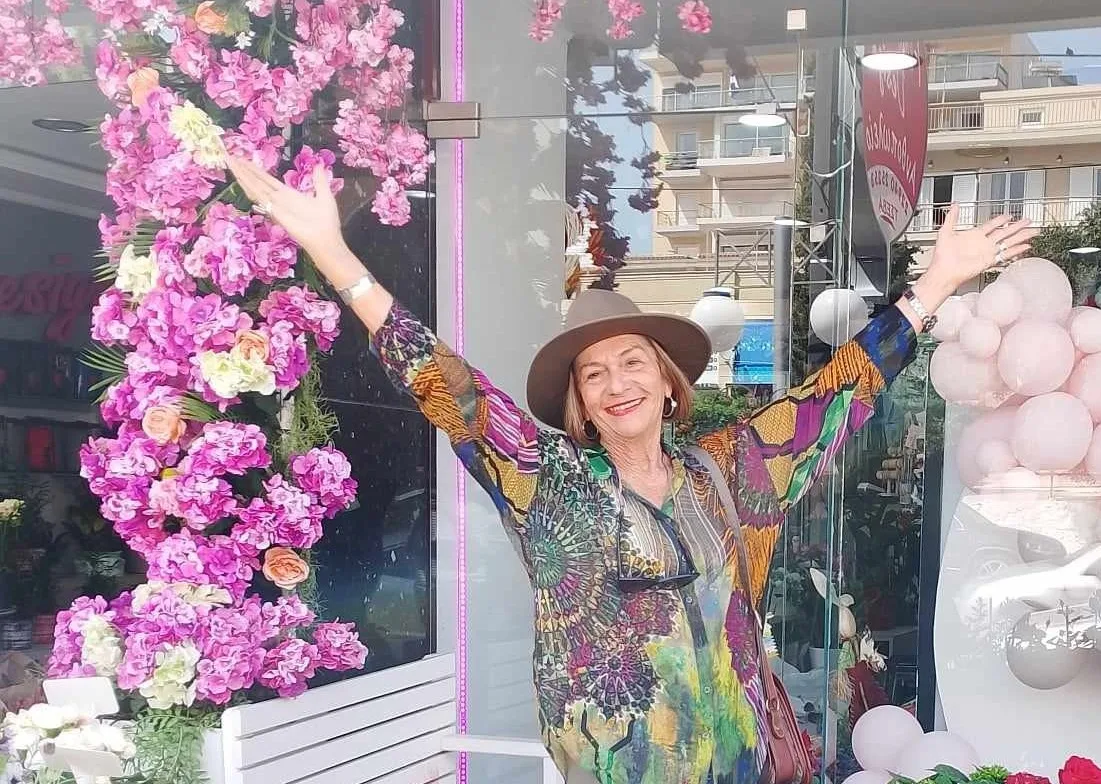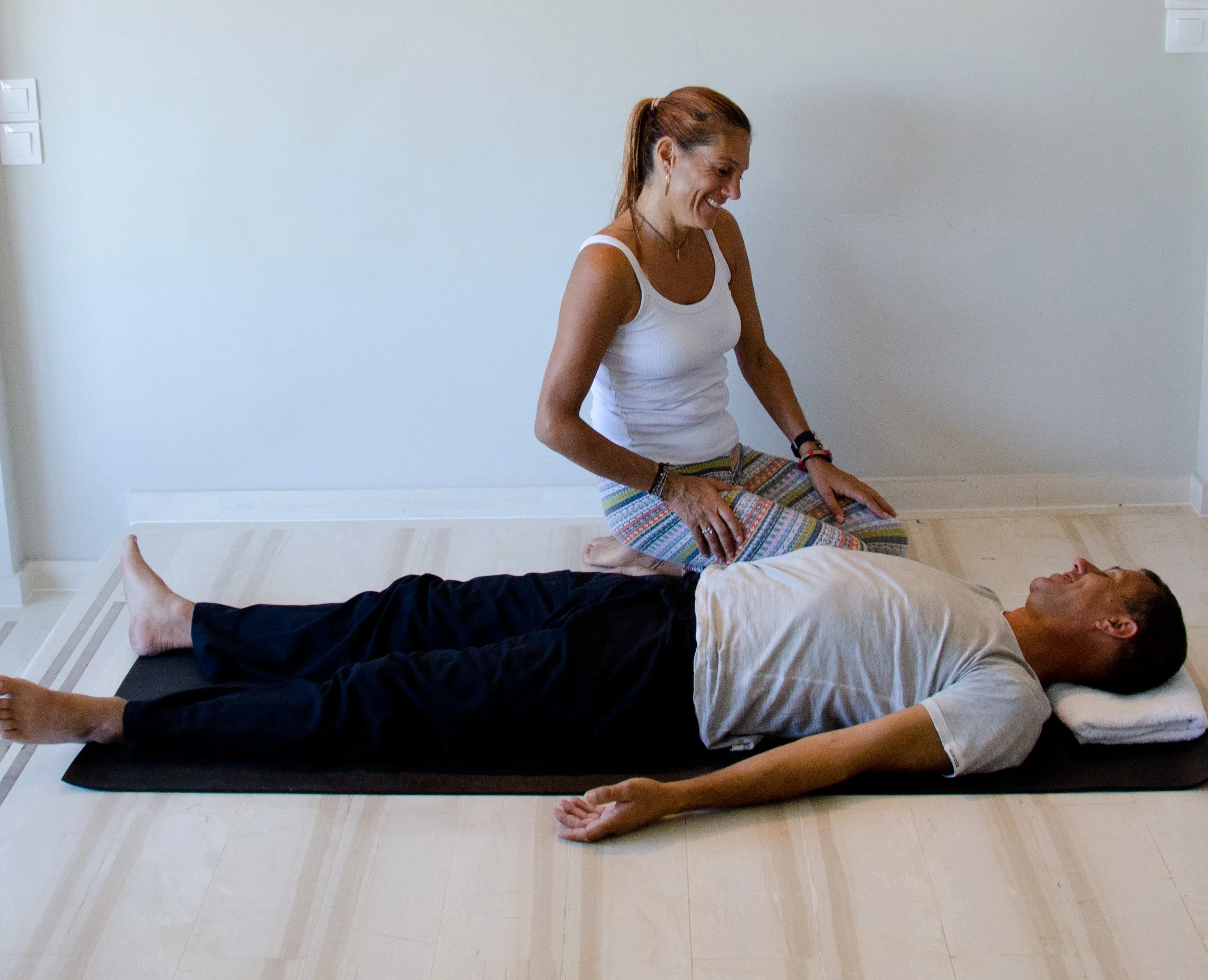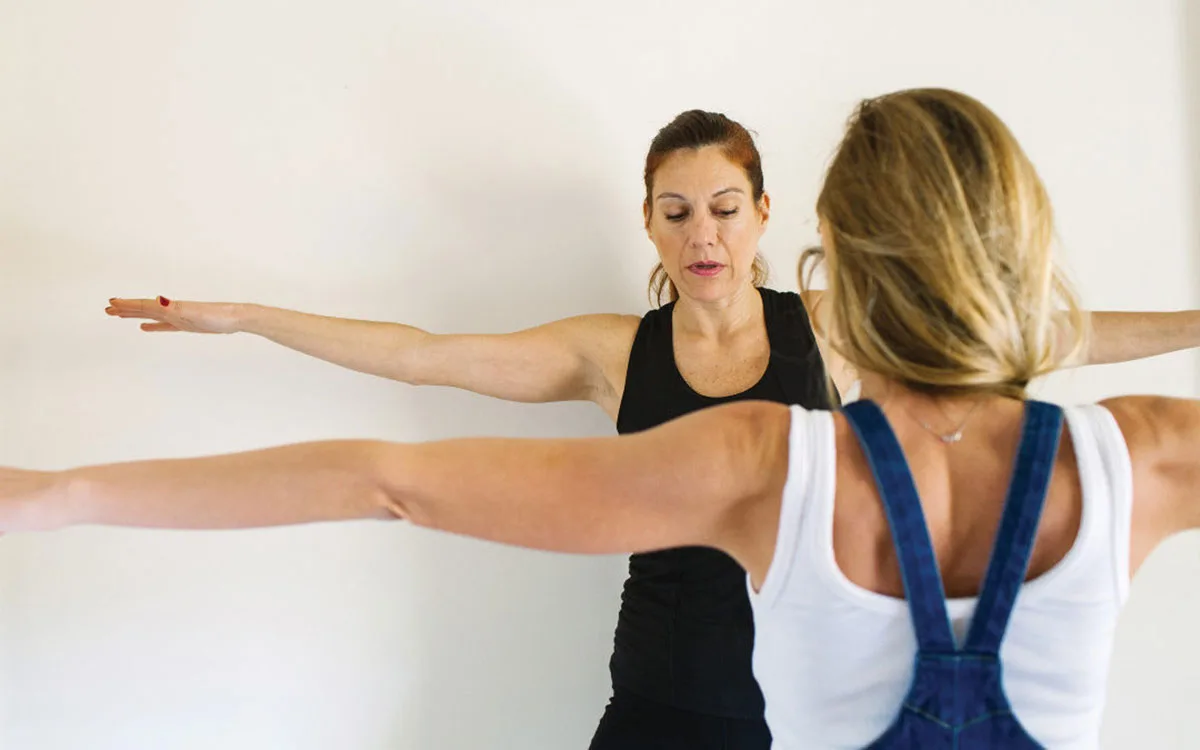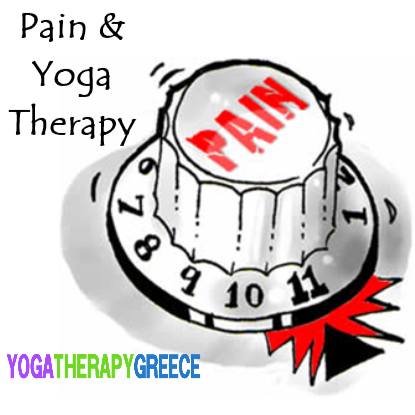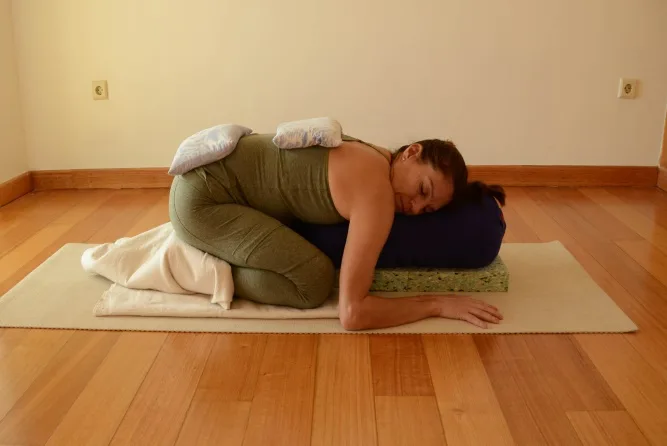Yoga Therapy for Chronic Pain

Based on our experience working with numerous people facing Chronic Pain issues, we are pleased to share some information and yoga tools that you might find helpful. Of course, every person is unique, and this is we know very well in yoga therapy, where based on the individual’s needs, energy level, body, breathing pattern, character, lifestyle and beliefs we develop a personalized graded holistic practice.
The International Association for the Study of Pain (IASP) defines pain as ‘an unpleasant sensory and emotional experience associated with actual or potential tissue damage (Merskey, 1979). Pain is always a personal experience that is influenced to varying degrees by biological, psychological, and social factors.
Chronic pain is defined as the pain that lasts beyond the time that tissue healing would normally be expected to have taken place as beyond 3 months (British Pain Society, 2013).
Chronic pain is the result of a dynamic interaction between physical, psychological and social factors. These factors contributing to pain become established behaviours with chronicity. Pain behaviours such as altered posture and movement, verbal complaints, fear avoidance are suggesting pain but also fear of pain, psychological distress and low self-efficacy (Harding and Watson, 2000).
Methods that divert attention from pain, induce activity and pacing as well as educate patients about pain and the factors that modulate it, give a sense of control and enhance pain self-management are the most efficient (Moseley and Flor, 2012). The methods chosen should take into consideration the expectations of the individuals, since they influence a lot the outcome of any intervention.
Methods that enhance acceptance, mindfulness and psychological flexibility such as relaxation, self -management and pacing of overall activities (British Pain Society, 2013), as well as diaphragmatic breathing, relaxation by repeat positive affirmations, guided imagery relaxation/visualization are highly recommendedfor their effects on balancing the nervous system by shifting to parasympathetic activity and could also be suggested in combination to any other strategy since they give sense of control and enhance pain self-management(Harding and Watson, 2000, O’Sullivan, 2018).
The biopsychosocial (BPS) patient-centred approach is the most effective approach for chronic pain, where the patient’s characteristics such as thoughts, beliefs, behaviours, expectations, and way of life will determine the intervention and shape the characteristics of the exercise treatment approach (Meeus et al., 2016).
Yoga therapy is based in the biopsychosocial (called the panchamaya kosha in sanskrit), where we take into consideration the body’s needs and capabilities, the personal energy level and the condition of the nervous system that is expressed by the breath and the way people sleep, the way people think about their condition and the effect of pain in their life, their characters and the way they relate to family, society, and what supports them and makes them feel happy.
Pain changes us. Pain is associated with disruptions in awareness of breath, body, thoughts, and emotions and in an ability to self -regulate. We know it as we also know that pain changes and can be modulated by the way we think and every aspect of our existence. We also know that the intensity of pain, its location and its quality are not accurate indicators of tissue damage or health or of how much to move or exercise. Through Yoga Therapy with the personalized breathing techniques, with guided relaxation, with positive affirmations, with graded exposure to movement and absolutely personalized practice based on each body, energy levels, character, and lifestyle we address the pain holistically, as is shown to be effective in research over the last 20 years
https://yogatherapygreece.com/ for details of IAYT Accredited 800 hours Yoga Therapy Training, personal and group yoga therapy sessions
#yogatherapyforpain #yogaforchronicpain #yogaforpain #yogatherapygreeceforpain #iayt #yogatherapist #EviDimitriadouyogatherapist #yogaandpain #yogaforpain #yogatherapygreececom




